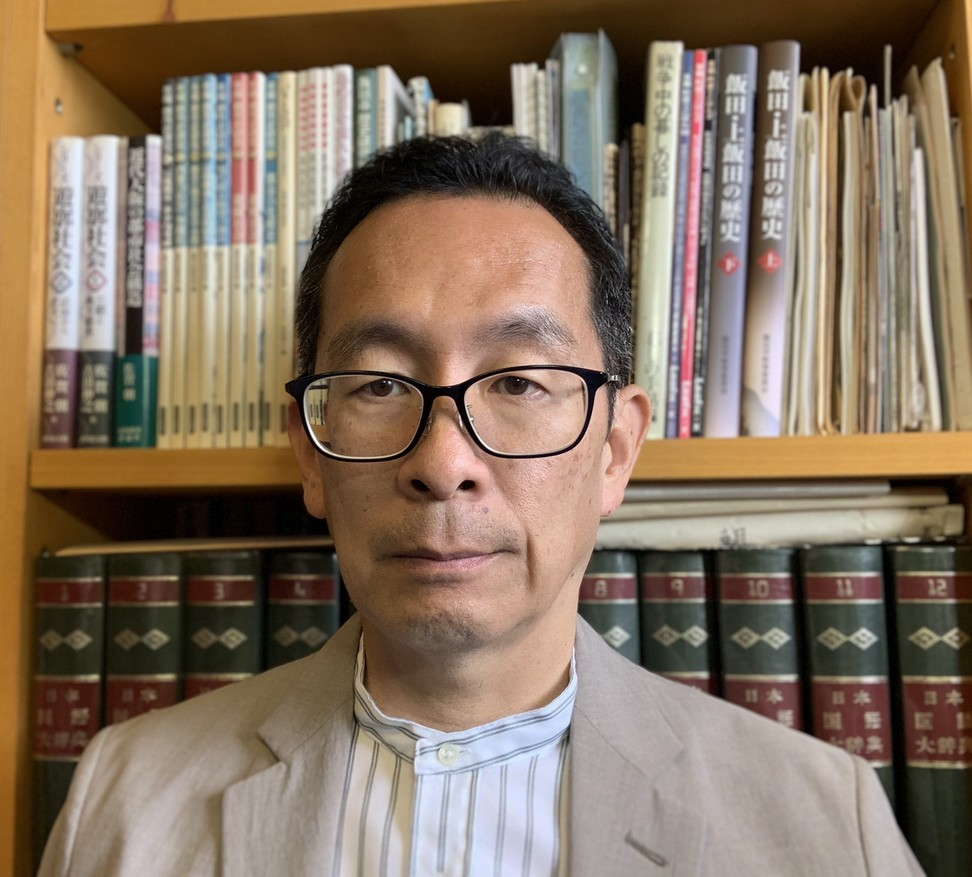Message
Greetings from the Dean of the Graduate School/ School of Literature and Human Sciences
Ashita Saga, Dean of the Graduate School and School of Literature and Human Sciences

Hello, and welcome to the website of the Graduate School of Literature and Human Sciences, Osaka Metropolitan University.
The Graduate School of Literature and Human Sciences, Osaka Metropolitan University, was established in April 2022 as a successor to the Graduate School of Literature and Human Sciences, Osaka City University.
Osaka City University’s origin can be traced back to Osaka Commercial Training Institute, founded in the Meiji period (1868–1912). In 1928, the Institute was upgraded to become Osaka University of Commerce. This was achieved largely owing to the tireless efforts of Hajime Seki, Mayor of Osaka at the time and a renowned theorist and practitioner of urban planning and urban social policy. From its very outset, Osaka University of Commerce was strongly committed to the citizens of Osaka and the development of their city. After the World War II, the University established a humanities faculty in 1949 under the title of Faculty of Law and Literature, following which the Faculty of Human Sciences was established as a separate entity in 1953. The Graduate School of Literature and Human Sciences was also founded that year as a postgraduate facility. This year is therefore an important milestone for us as it marks the 70th anniversary of the School’s independence.
In April 2022, Osaka City University merged with Osaka Prefecture University to make a fresh start as Osaka Metropolitan University. Despite the change in name, the School of Literature and Human Sciences maintains unchanged the institutional structure, curriculum, and staffing system of Osaka City University. We continue a proud tradition, built over 70 years at the Graduate School of Literature and Human Sciences, of research using a broad range of methodologies on humanity and the languages, cultures, histories, and societies that it creates.
As a “School of Literature,” we have consistently worked to maintain a strong presence in the humanities and social sciences, leveraging our expertise as a traditional standalone faculty. At the same time, we have pioneered the development of interdisciplinary and applied academic fields in response to the changing needs of today’s society. To this end, in Academic Year (AY) 2019, a new Department of Cultural Management was added to the existing Department of Philosophy and History, Department of Human Behavioral Sciences, and Department of Language and Culture. Thus, as of AY 2020, the School of Human Sciences was able to offer a choice of four majors, namely, Philosophy and History, Human Behavioral Sciences, Language and Culture, and Cultural Management. This is a rich educational and research environment that includes both research and applied fields.
We are now in an era of unpredictability that will see the advent of an advanced knowledge-based society in the context of a globalized society. Under these circumstances, the School of Literature and Human Sciences assists our undergraduate and graduate students to become aware of their own strengths and potential and helps them grow as human beings capable of respecting the value and dignity of all those around them. Through learning in collaboration with our faculty members, we aim to help our undergraduate and graduate students become individuals who can work together with diverse people to overcome the social changes that they will face and create rich and meaningful lives as active members of the sustainable society of the future.
Society is evolving thanks to dramatic advances in science and technology, and yet, we are faced with a plethora of still-unresolved global and regional issues of war, poverty, and class and gender discrimination. The Russian invasion of Ukraine, which started in 2022, signifies the beginning of a serious new crisis that can slow down or even reverse the arc of history and threaten the peaceful survival of the human race. Given these challenges before us, the humanities and social sciences are called upon now more than ever to play a strong academic role in asking the question of “What does it mean to be a human being?” in more multifaceted and fundamental ways.
Another thing that sets the School of Literature and Human Sciences apart is our commitment to small-group education in the true sense of the phrase. Our undergraduate and postgraduate students work extremely closely with the faculty members, and we take the idea of “learning together in a shared space and time” seriously. We are also highly committed to offering our students hands-on opportunities to undertake fieldwork and practice, to analyze and discuss using primary sources and raw data, and to engage in other forms of interaction with the real world. While we are committed to using a wide range of digital tools, we simultaneously stress the importance of education and research through “shared time and space” and “contact with the real.”
In this way, our School offers an educational and research-friendly environment in which studies are undertaken alongside living, breathing fellow human beings, and students can learn through practice in the real world. Our students are thus provided with a springboard to learn about others in multifaceted and fundamental ways. We welcome a broad diversity of undergraduate and graduate students, and we truly look forward to collaborating with you. We warmly encourage you to join us here at the School of Literature and Human Sciences.